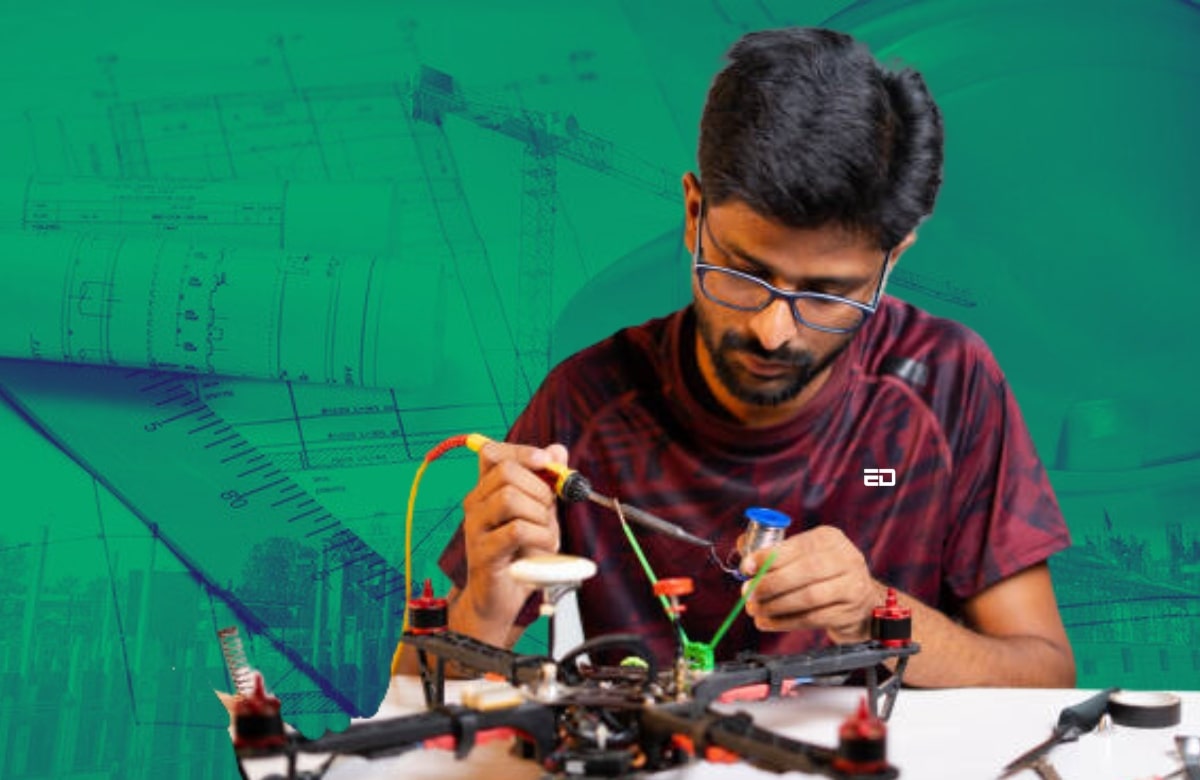India has long been recognized as a global hub for producing science and engineering graduates. However, recent trends suggest a shift in the dynamics of engineering education in the country.
With the drastic changes, it’s an opportune moment to examine the declining enrollments, job placement challenges, and concerns regarding the employability of India’s engineering graduates. In addition to these issues, high financial costs and the demanding nature of a four-year engineering course are factors that may be discouraging aspiring engineers.
Changing Demand and Enrollment Trends
The era of engineering boom, witnessed during the late 2000s and early 2010s, is now showing signs of decline. Over the last seven years, the number of engineering institutions in India has decreased by 9%.
In 2014-15, more than 17% of undergraduate students were pursuing engineering degrees, but by 2020-21, this figure had dropped to 12%.
Additionally, the percentage of women enrolling in B.E./B.Tech. programs has remained relatively stagnant at around 28.6% since 2012-13, according to data from the All India Survey on Higher Education.
The Challenging Path to Becoming an Engineer
The journey to becoming an engineer in India is known for its daunting and rigorous nature. From the intense competition in entrance exams to securing a job placement, the process is demanding and competitive.
What’s concerning is that the pass rates have seen a decline, with only 66% of undergraduate students who enrolled in 2018-19 passing in 2022-23, down from 85% in the previous year.
While the number of students securing placements has remained relatively stable, this suggests a saturation in the influx of engineering graduates entering the job market.
Read More: Bengaluru Engineering College Demands 2.1% Of Students’ CTC As Placement Fee, Allegedly
The Present and Future of Engineering
Computer engineering continues to be the most popular engineering stream, followed by traditional fields such as mechanical, electronics, and civil engineering. However, the landscape is evolving rapidly, with a growing focus on emerging technologies.
A survey by Naukri.com reveals a rising preference for fields like artificial intelligence and robotics in the job market. This shift reflects the changing demands of industries and the need for engineers with expertise in cutting-edge technologies.
Labor Realities and Employability Challenges
While information technology and core engineering roles remain the most sought-after fields in terms of job placements, a concerning statistic looms large.
Despite having a vast pool of engineering talent, more than 40% of Indian engineers are deemed unemployable, according to an annual survey. This poor employability rate is pushing many engineering graduates toward non-core jobs, which may not align with their education and training.
The landscape of engineering education in India is undergoing significant changes. The declining enrollments, challenges in job placements, and concerns about employability are issues that demand attention.
To remain relevant in the job market, engineering education in India must adapt to the evolving needs of industries, especially in areas like artificial intelligence and robotics. Additionally, efforts to enhance the quality of education and reduce the dropout rate should be prioritized.
Image Credits: Google Images
Feature image designed by Saudamini Seth
Sources: Mint, Bharat Times, Moneycontrol
Find the blogger: Pragya Damani
This post is tagged under: Engineering education, India, Declining enrollments, Gender disparity, Challenging path, Job market saturation, Emerging engineering fields, Employability concerns, Education adaptation, Quality improvement
Disclaimer: We do not hold any right, copyright over any of the images used, these have been taken from Google. In case of credits or removal, the owner may kindly mail us.































